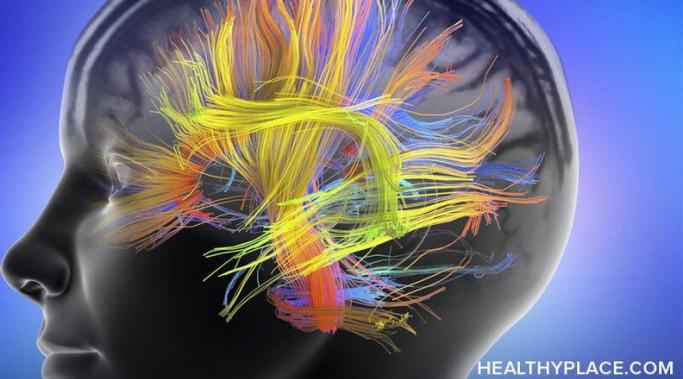Using your brain and body in PTSD recovery is critical. It isn't one or the other but both that contain important elements of healing: messages, ideas, options and opportunities for success.
The following healing stories were shared with me as I interviewed one of our national treasures: Dr. Bernie Siegel. Don't know him? He's an American writer and retired pediatric surgeon, who writes on the relationship between the patient and the healing process. Known for his best-selling book, Love, Medicine and Miracles, Bernie is a unique presence in the trauma world because he's a doctor (a/ka/, a person trained to believe "the mind and body are completely separate") who believes that not only are the mind and body connected, you can use your mind to heal your body.
PTSD Treatments
In my previous post, I looked at the question of whether or not your therapist was doing "the correct thing" in treating your PTSD. I suggested that this is an ambiguous question, for what is correct from her or his point of view is usually related to the treatment model they are using, while for YOU it is not about that at all. So, we really have two questions to look at.
I suggested previously that assessing whether or not your therapist was doing the correct thing was basically beyond the capability of most psychotherapy clients, with the probable exception of a client who was themselves a psychotherapist, and who uses the same treatment model. Finally, I suggested that it was actually quite sufficient for you, as the client, to deal simply with YOUR part of this question. That question, as I have thought of it, forms the title of this post: Is your PTSD therapy giving you the results you want?
One of the biggest problems in my PTSD experience and my recovery from PTSD was how fragmented I was and felt. Do you know what I mean?
It seemed like I had slivers of memories, a shattered sense of self and random sprinkles of what it meant to live a healthy, 'normal' life.
Healing PTSD, to me, became finding a way to pull everything back together. It meant re-integrating who I had been with who I had become, with who I wanted to be. (PTSD and Integration: The Path To Healing) Whew, that was a big job! And back then, I didn't have the benefit of Dr. Daniel Siegel's input - but you can!
The beginning of my PTSD recovery looked like this:
Force me to go to therapy for one hour, once a week.
I show up and expect the therapist to do all of the work.
For the rest of the week, I pretend there’s nothing else to do and just try to limp through the days coping with symptoms of PTSD.
Why did I pretend there was nothing else to do? Because if you’ve ever, for a second, struggled with the effects of trauma or PTSD, you know what it feels like to be sleep-deprived, depressed, emotionally volatile, powerless, hopeless and sometimes, just downright utterly despondent. In that state of mind, I often believed there was no way to save me. I was crazy and would remain so forever.
A reader recently asked me a very important question. Speaking of her therapist, she asks "How do I know that what he is doing therapeutically is the correct thing?" This is a surprisingly complex question. I will point out the major issues to address in coming up with an answer, then describe my own preferred way of dealing with this question.
However, there are two aspects to consider here - your therapist's viewpoint, and yours. It is quite possible for your therapist to do the "correct" thing, but not to get the results you want. Because each of these considerations deserve careful thought, I will address my reader's question in two posts. This first one will consider how to think about your therapist. We must begin by asking: What determines "correct" for your therapist?
Previously, I proposed that trust of your therapist is necessary if you are to achieve the success you hope for when engaging their services (Therapy's First Obstacle: Trust My Therapist? No Way!). At the least, you hope for reduction of the undesirable trauma and/or PTSD symptoms which bring you to therapy in the first place. You should also hope to regain at least some of what you've lost because of the intrusion of these symptoms into your daily life. Working collaboratively and cooperatively on these important, challenging goals with your therapist is the only reasonable plan for you to adopt if you want therapy to work.
Living in the chaos of PTSD symptoms and post-trauma haze can make you very self-centered. Know how I know that? I used to be like that! It's hard to cope on the inside and still be sensitive to others on the outside. Heck, it's tough to be miserable and do anything that would make someone else happy.
One U.S. Marine + One Guitar = Big Impact
When was the last time you did something nice for someone else? Last week, on Changing Direction, I interviewed U.S. Marine, Markus Fox, about how his guitar and music helped his platoon during a particularly difficult night in Iraq. They had lost the first two casualties since their deployment and the platoon was very upset. Markus took out his guitar, sat on the back step of a truck and invited the other soldiers to pull up their stools while he played a tribute to their fallen brothers. The results of this simple, selfless act during a time of trauma were enormous.
Still, there are a couple of problems with the PTSD self-centered lifestyle. Let's take a look...
If you've survived a trauma you know that your mind records various experiences in images as vivid as a high-end digital camera. When I first started working as a PTSD coach one of my clients came in with a specific request: "I want to erase all of the memories associated with my trauma," she said.
Finding the right help in overcoming PTSD can be challenging. From a financial aspect it can consume your savings. I actually had to turn to family to help me shoulder the cost of years of treatment.
But what if you don’t have the financial resources for a full-on approach? Or, what if you do and still find it tough to get through the days between sessions?
Back in 2009, I went to the annual trauma conference in Boston hosted by Bessel van der Kolk. It was a fantastic conference with a slew of professionals presenting on various aspects of and treatments for PTSD.
One of the stars of the conference was Neurofeedback (NFB), a process that I didn't know very much about. Many of the presenters shared facts, statistics and applications for NFB and spoke about how effective it was in helping to reduce symptoms of posttraumatic stress.
Do you know what NFB is and how it works? Here's a quick overview...









